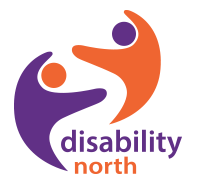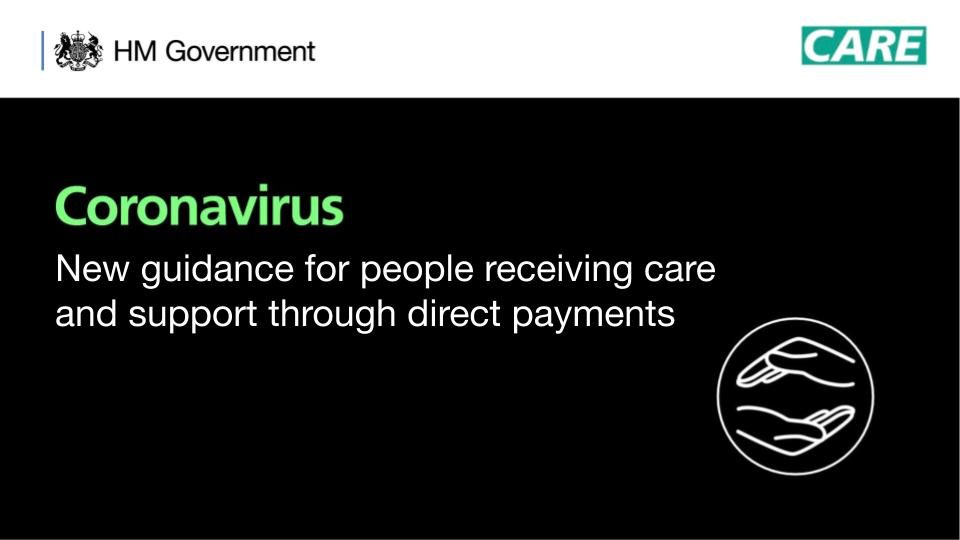The long-awaited Government guidance for those receiving direct payments has been published here:
An informative Q&A developed by the Department of Health and Social Care (DHSC) has also been published which is based on questions and concerns raised by members of the public and organisations such as TLAP, IN control and skills for care. This Q&A is a working document and will be regularly updated to take into account any new guidance published, and also to respond to any new issues or concerns raised by members of the public. If you have any concerns or questions that are not reflected within this guidance (or other published guidance), you can submit these to pa.framework@skillsforcare.org.uk. Alternatively, you can submit them to Disability North (ViciRichardson@disabilitynorth.org.uk) and we will send them on your behalf.
Key points are as follows:
Contingency Planning
- Encouragement to think through contingency plans and have a back-up plan if your PA is unable to work.
- Ensure that your job description is up to date and key info can be shared to staff that may not be as familiar with your support
- Have a list of emergency contacts prepared
- The guidance has some reassurance that if your contingency plans fail and you are unable to access support, local authorities and clinical commissioning groups (CCGS) must have systems in place to respond as quickly as possible to support you to make alternative arrangements. It also gives reassurance that they expect budgets to continue.
- It does state if your Direct Payment is stopped due to an extreme circumstance the local authority should explain this and discuss alternative arrangements with you.
Flexibility
- Throughout the guidance and the Q&A there is a recommendation for a flexible approach to be adopted by local authorities and CCGs. The first section on the Q and A is titled ‘Flexible use of direct payments during the pandemic’ – During the pandemic, we expect local authorities, CCGs and direct payment holders to adopt a more flexible approach to the use of direct payments.
- The guidance does ask you as a Direct Payment holder to be able to reasonably justify any changes, log them and keep any receipts. Any changes must be in order to keep you safe, well and out of hospital.
“Therefore, in circumstances where there is clear rationale that enables the individual to keep safe and prevent admission to hospital, local authorities and CCGs should be willing to give the individual more flexibility in how they use their direct payment, with the guiding principle being ensuring that they safely receive the care and support they require.”
- The guidance also says that “Local authorities and CCGs should consider requests to pay a close family member to provide care if deemed necessary local authorities and CCGs should acknowledge the nature of people’s needs and should have systems and processes in place to be able to respond as quickly as possible and support you to make arrangements to continue to manage your care. Only in cases of emergency, and where time-critical, you should be able to decide to put a suitable package of care and support in place for a short period, for example 4 weeks, as long as you can justify and evidence this retrospectively.”
Personal Protective Equipment (PPE)
- There is clarification that if you need PPE over and above what you would normally have that you can request this from your Local Authority/CCG
- If there are problems with your usual supply be that availability or price, again you can request the PPE from your Local Authority/CCG.
- PPE must be worn to provide care to those who are shielding and those with COVID 19 symptoms
- Disability North is working with Newcastle Council on getting PPE to employers please contact 0191 2840480 or vicirichardson@disabilitynorth.org.uk
Paying Family members
- The guidance does encourage consideration to be given to allow family members to be paid as PAs, it outlines some considerations and this should be raised with the local authority or CCG. The usual payroll procedures would apply.
Furlough
Job retention Scheme (‘furlough’) ends 31 Oct 20 and is replaced by the Job Support Scheme from 1 Nov 20, which was ‘extended/upgraded’ by the gov on 22 Oct from the original plan. There are two kinds of Job Support Scheme depending on whether you are employed by a business which is open (‘JSS Open’) or has been forced to close due to coronavirus (‘JSS Closed’). Both initially run for 6 months. See gov guidance and Money Saving Expert for further information.
Steps for Local Authorities and CCGS to take
Many of you have expressed concerns that Direct payment employers have been left out of the government briefings and overlooked in this current crisis with no specific information coming forward. The guidance does put some responsibility on local authorities and CCGS and has a section that details steps they should take. This includes contacting you to provide information and advice for maintaining your care and support and how to make contact if you think that there may be a difficulty in continuing to receive care and support via your direct payment. It also encourages local authorities and CCG’s to engage with local voluntary and community services to see how they can support Direct Payment holders.
Disability North will continue to work with the local authority, CCGS and other local organisations and contribute to any relevant resilience planning. As part of that commitment, we have today launched a PA register to assist in the redeployment of PAs and to help you find quality support should your usual PA support break down due to the current crisis. Please contact Vici Richardson (details above) for further information.
We hope that during this time Local authorities, CCGS will have a flexible and person-centred approach. As Think Local Act Personal (TLAP) has stated on their website “At this difficult time, now more than ever, local authorities and clinical commissioning groups must trust people as experts in their own care and provide them with the back up to make sure they can exercise choice and control to protect themselves, their loved ones, and the people that support them.”
23rd April 2020


